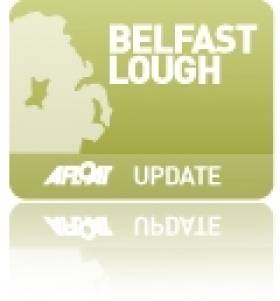Displaying items by tag: Irish Sea Maritime Forum Inaugural Conference
#BELFAST LOUGH - Following two stakeholder workshops that were held in Liverpool and Dublin in 2011, a new Irish Sea Maritime Forum is to be held this Thursday in Belfast, writes Jehan Ashmore.
The one-day conference has been established with the support of the Department of Environment (DOE) in Northern Ireland, The Isle of Man Government, the Marine Management Organisation and the Irish Planning Institute.
Delegates attending the free pre-booked inaugural conference of the forum, is to be held in the iconic new Titanic Belfast visitor centre and is open to all with an interest in the Irish Sea. Presentations are to include an opening address from Northern Ireland's DOE Minister Alex Attwood, MLA and Dr. Peter Heffernan, CEO of the Marine Institute based in Oranmore, Co. Galway.
The conference is organised by the North West Coastal Forum which was formed in May 2000. Originally it was hosted by Government Office for the North West and later by the North West Regional Assembly / 4NW as an independent partnership of coastal stakeholders to help with coastal policy development. Currently there is a management board with representatives from over 25 coastal stakeholder organisations, an elected chair, and carries out a wide range of activities.
In recent years the forum has worked with Department of the Environment, Food and Rural Affairs (DEFRA) and other bodies to influence the development of the Marine and Coastal Access Act 2009. The forum has also worked in assisting the development and implementation of legislation, including the Water Framework Directive, the Marine Strategy Framework Directive and the Bathing Water Directive.





























































